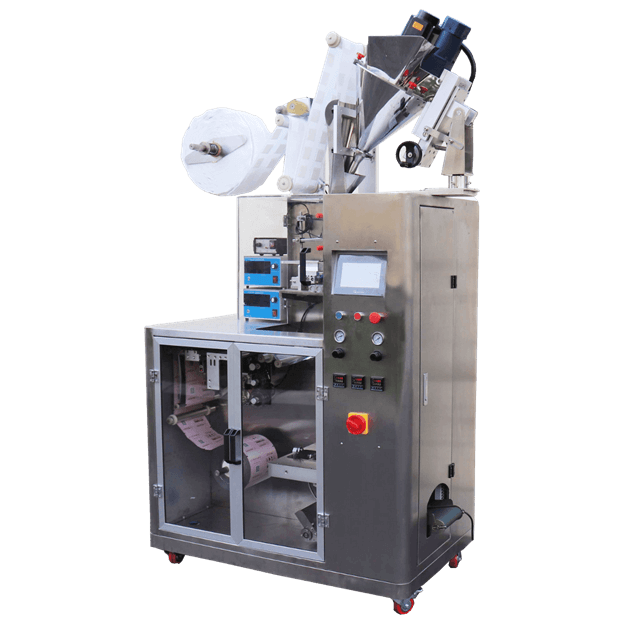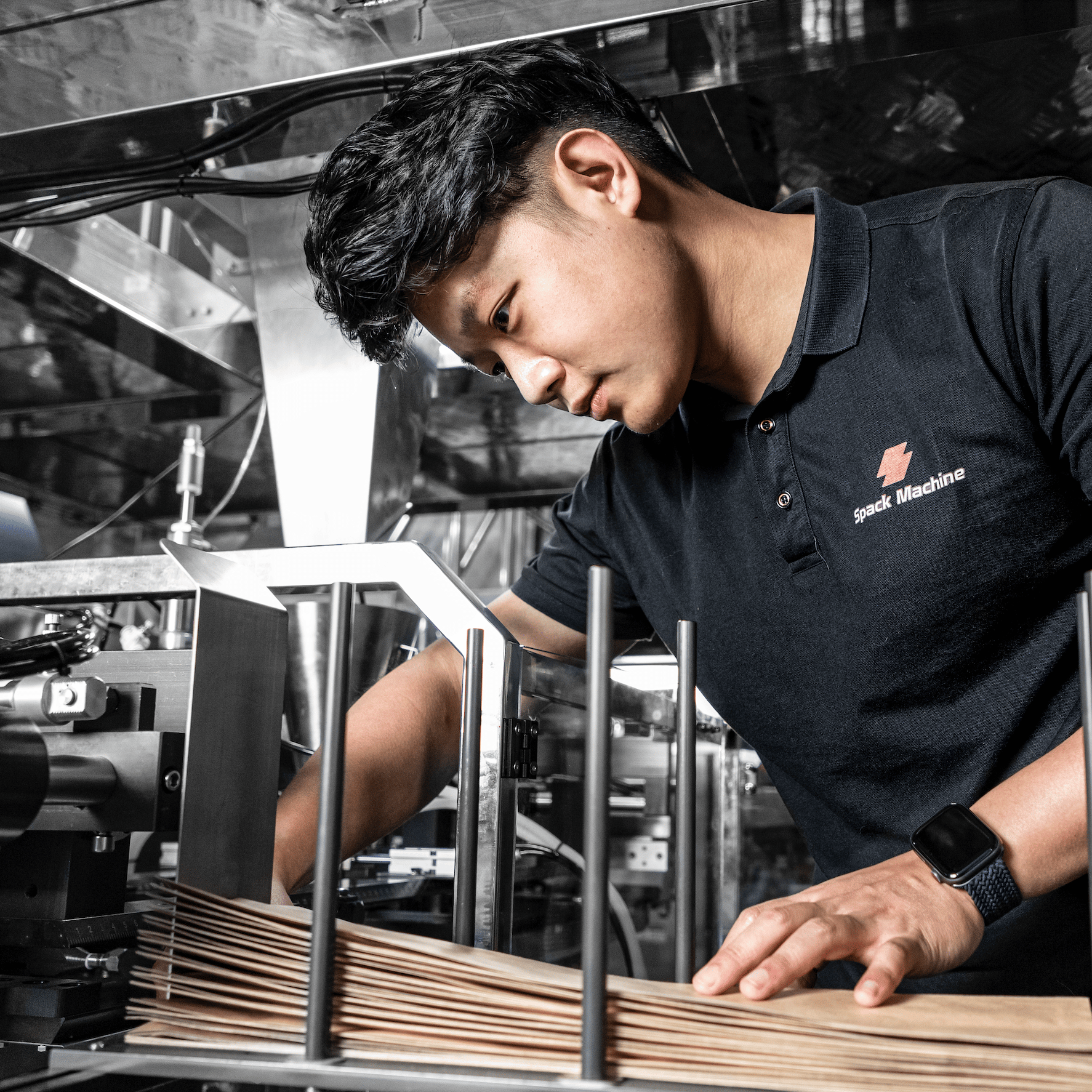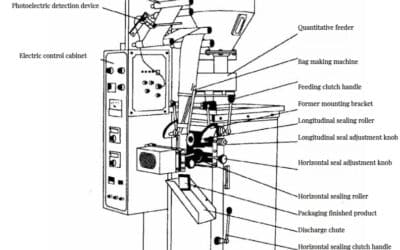Trying to find the best source of coffee packaging machines? The search is over! In this guide, we’ll go through the most important things to look for in a supplier.
To help you find the greatest value in your coffee packaging machine, we’ll also provide you with some pointers.
As such, whether you’re searching for a low-cost option or a high-performance machine, we’ve got you covered here.
Thorough Technical Support
Experts in coffee packaging machines understand the technicalities of the machines and can offer you comprehensive support.
The supplier should have a highly trained team of technicians who can offer you telephone support, online support, and even on-site support if needed.
If you have just started your coffee line business, choosing the right packaging machine can be a bit overwhelming.
However, with careful research and consideration, you can find the supplier that is best suited to meet your needs and help your business succeed.
You should be able to get in touch with the technical support team easily and they should be able to resolve any issues you are having with the machine quickly.
The support team should also be able to offer you advice on how to get the most out of your machine and how to troubleshoot any issues you may come across.
A supplier that offers thorough technical support is essential, especially if you are new to using coffee packaging machines.
High-Quality Professional Service
High-quality professional service is another critical factor to consider when choosing a coffee packaging machine supplier. The supplier should offer you the best possible advice and support, allowing you to get the most out of your machine and make the most of your business.
Additionally, the supplier should have a track record of satisfied customers and a solid reputation in the coffee packaging industry.
When choosing a coffee packaging machine supplier, it is important to do your research and carefully consider all of these factors. With the right supplier on your side, you can be confident that you are getting the best possible equipment for your business needs.
Individual Customization

When considering coffee packaging machine suppliers, it is important to consider those that offer individual customization. This ensures that your specific business requirements are met and that you receive a machine that perfectly meets your needs.
Many coffee packaging companies now operate online, which makes it easier than ever to find the right supplier for your business.
By taking the time to research and compare different suppliers, you can be sure to find the one that offers the best possible service and equipment for your business.
Flexible Payment Terms
Flexible payment terms are another important factor to consider when choosing a coffee packaging machine supplier.
The supplier should offer you a range of payment options that are suitable for your business and its budget. Some suppliers may even offer discounts or special payment plans to help you get the equipment that you need at a price that works for your business.
High Automation and Speed of Coffee Packaging Machines
Another important factor to consider is the speed and automation of the coffee packaging machine. Automated machines can help you increase efficiency, reduce labor costs, and streamline your production process.
When comparing different suppliers, it is important to look for those that offer high automation and speed in their coffee packaging machines. This will ensure that you are able to get the most out of your machine and produce a high-quality product quickly and efficiently.
In today’s market, there are many different types of coffee packaging machines available. It is important to choose a supplier that offers a wide range of options so that you can find the perfect machine for your specific business needs.

Efficient Supply Chain
Finally, it is also important to consider the supplier’s supply chain.
The supplier should be able to deliver your machine quickly and efficiently, without compromising on quality or reliability. They should also offer a full insurance package so that you can be confident that your investment is protected in the event of damage during transportation or installation.
Overall, choosing the right coffee packaging machine supplier is an important decision that is worth investing some time and effort into.
With careful consideration of these key factors, you can be confident that you are choosing the best possible supplier for your business needs. This will help to ensure that you receive high-quality equipment, efficient service, and flexible payment terms.
Factors Influencing Coffee Packaging Machine Costs
There are many factors to take into account when evaluating the costs of a coffee packaging machine, including size, features, and supplier.
Size

The first consideration when it comes to calculating the cost of a coffee packaging machine is its size. This can vary depending on the volumes that you need to package, as well as your available space and budget. Generally speaking, larger machines tend to be more expensive than smaller ones.
Features Offered
Another key consideration when evaluating packaging machine costs is the features that are offered by different suppliers. These might include customized settings, programmable controls, or automatic operation for increased efficiency and reduced labor costs.
It is important to assess your needs carefully when comparing different options, as this will help you find the best fit for your specific requirements.
Supplier Considerations
Another important factor to take into account when assessing coffee packaging machine costs is the supplier that you choose to purchase from. Many suppliers offer different price points and features, so it is important to compare options before making a decision.
In some cases, it might be worth paying a little extra for a machine that comes from a reputable and reliable supplier, as this can help to ensure quality and consistency over time.
Ultimately, the key is to find the right balance between price, features, and quality in order to get the best value for your money.
Type of Coffee Bags and Packaging Equipment
The type of coffee packaging equipment is also important to consider when trying to control costs. There are different types of packaging machines:
Stick Bag Coffee Packaging Machine
Stick pouches are long and thin pouches. Single-serving containers are designed to fit in a small space. It’s also possible to make the material of the pouch water- and freeze-resistant.
Stick bags are also useful because of the ease with which they may be opened.
The food and pharmaceutical industries also benefit greatly from the use of Stick pouches. Instant coffee and prescription powder may be stored in this container with the least danger of exploding.

This type of equipment is best suited for products that are difficult to pack, such as those that are very fine or have an irregular shape.
Spack’s stick packaging machines can automatically fill, seal, and cut a variety of materials, including laminated paper, aluminum foil, BOPP/CPP, and PET/PE.
Pillow Bag Coffee Packaging Machine
Pillow bags are one of the most common types of packaging, as they are ideal for a wide range of products.
These bags are made from two pieces of heat-sealed film that have been cut into the shape of a pillow. The bag is then filled with the product and sealed.

Pillow bags are often used for products that are relatively heavy or large, such as cereal, candy, and granola.
The food and pharmaceutical industries also use pillow pouches to store a variety of products, such as spices, coffee, and tea. Pillow packaging is a good option for products that require a high level of protection, as the material used to make the pouch is generally quite strong.
Doypack Coffee Packaging Machine
For coffee lovers and coffee connoisseurs alike, doypack packaging machines are good packaging equipment options. A doypack is a type of packaging that coffee beans are typically sold in and it’s also one of the most popular methods for packaging coffee.

Doypack packaging machines can make your coffee packaging process much easier and faster, as well as help maintain the quality of your coffee beans. They seal the bags properly and ensure that your coffee beans are protected from moisture, air, and other contaminants that could affect their freshness and flavor.
Drip coffee bag packaging machine

A drip coffee bag packaging machine is a device that is used to package drip coffee in individual bags. In a single machine, a drip coffee bag machine may produce drip coffee bags with an outer bag.
This type of machine contains a lot of features that are helpful to many business owners like you.
Personally, our drip coffee bag packaging machine has a photoelectric eye that is beneficial to set the packaging size and ensure that each bag is filled with coffee products.
Plus, our machine also can automatically count how many bags have been produced. The packaging speed is about 30-40 bags per minute.
Plus, our drip coffee packaging machine’s material compatibility includes laminated film, laminated paper film, and aluminum foil film.
Speed
Another factor that affects the costs of your coffee packaging machine is the speed of production. Faster production times may increase the cost of your machine, but it can also help to reduce labor costs and boost efficiency.
When considering different coffee packaging machines, it’s important to compare the speeds of each model to find the one that best suits your needs.
Volume
The amount of coffee you need to pack is another important consideration when choosing a packaging machine. If you produce large volumes of coffee, you’ll need a machine that can handle high volumes of coffee beans.
On the other hand, if you only produce small amounts of coffee, you may be able to get by with a smaller, less expensive machine.
Filling system
There are different types of coffee, such as beans, granule, powder, etc. The filling system is responsible for accurately dosing the substance that is contained inside the pouch.
The filling system in packaging machines also needs to be designed according to the type of product that is being packed. For example, a powder product will require a different type of filling system than a granule or bean product.
Material Type
The type of material you use for your coffee packaging will also affect the cost of your machine. If you use a more expensive material, such as foil, it looks nice and is also good for keeping the product quality, but you can expect to pay more for your packaging material.
On the other hand, if you use a less expensive material, such as laminated paper, you can expect to pay less for your machine.
Takeaways
At Spack Machine, we are proud to offer state-of-the-art coffee packaging machines that are designed to deliver high-quality results every time.
Our coffee packaging machines are engineered with advanced features and innovative technologies that allow them to consistently produce beautifully packaged coffee with minimal effort on your part.






0 Comments